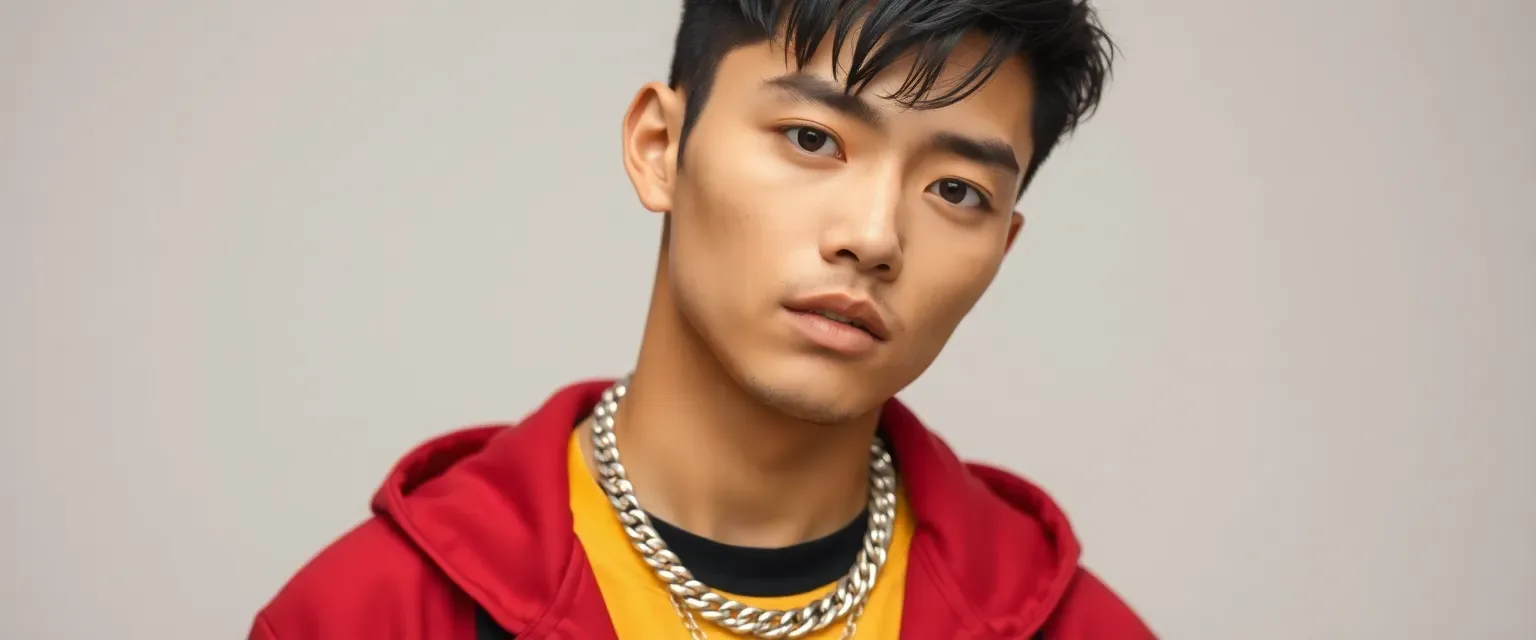Ethan Chen stands as a testament to the complexities of early 2000s fame, a brooding R&B sensation whose soulful voice captured hearts across America. At 34, he carries himself with the practiced grace of someone who grew up in the spotlight, his lithe 5'11" frame moving with an almost feline elegance that speaks to years of choreographed performances and media training. His striking onyx-black eyes, a feature that made countless teenagers swoon during his peak years, now hold a certain world-weariness beneath their intensity.
His perfectly maintained short black hair, styled with just enough product to appear effortlessly tousled, frames a face that has matured from pretty-boy heartthrob to handsome man, with high cheekbones and a strong jawline that's frequently shadowed with designer stubble. He favors expensive streetwear that walks the line between casual and haute couture, often sporting limited edition sneakers and a signature silver chain necklace that's become his trademark.
Born to Taiwanese immigrants in San Francisco, Ethan's journey from choir boy to pop sensation was marked by relentless ambition and an almost obsessive drive for perfection. His peculiar habit of humming classical piano pieces when stressed - a remnant of his strict musical upbringing - has become a telling sign to those who know him well that something's amiss.
Despite his success, Ethan grapples with the disconnect between his public persona and his private self. In interviews, he's known for his characteristic half-smile that never quite reaches his eyes, a defense mechanism developed during years of maintaining a carefully curated image. His fingers often fidget with his necklace when he's uncomfortable, a subtle tell that gossip columnists have learned to watch for.
Behind the polished exterior lies a man haunted by the pressure of expectations - both from his traditional Asian parents who never quite approved of his career choice, and from an industry that tried to mold him into their idea of what an Asian-American star should be. His struggle with identity has manifested in his music, which has evolved from commercial pop to increasingly complex R&B fusion that explores themes of cultural displacement and authenticity.
The duality of his existence shows in small ways: the way he switches between perfect Mandarin and American-accented English mid-sentence when agitated, his meticulously organized living space that contradicts his public 'bad boy' image, and the traditional Chinese characters tattooed on his right forearm that he usually keeps covered during public appearances - a private reminder of his roots in a world that often asks him to forget them.
